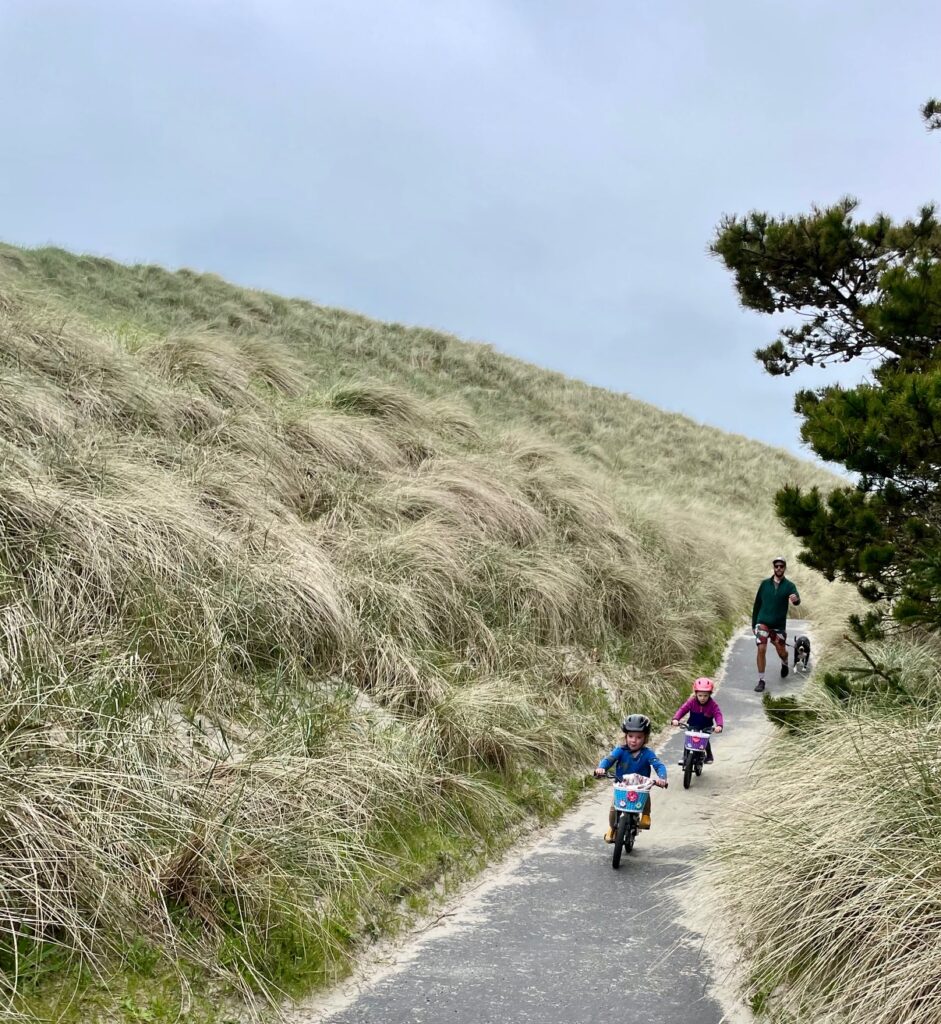BEST supports keeping recreational trails open
BEST joins Protect Oregon Recreation, Oregon Trails Coalition, and others in calling on state lawmakers to restore recreational immunity for land managers that open their lands to the public, in particular, with the -3 amendments to Senate Bill 1576.

Join BEST, Protect Oregon Recreation, Oregon Trails Coalition, and others in calling on state lawmakers to restore recreational immunity for land managers that open their lands to the public:
Background
The following information is provided by Oregon Trails Coalition.
Recreational immunity is a law (ORS 105.682) that encourages landowners to open lands to the public for recreational use by protecting the landowner if a recreational user seeks damages after an injury. Recreational immunity is important to both public land owners and parks providers as well as land trusts and private landowners who open their lands to the public through trail easements or other allowances.
All fifty states in the U.S. have enacted statutes that confer some degree of liability protection to landowners who allow the general public to use their land for recreational purposes.
Trails and access to nature and outdoor recreation provide so many benefits to individuals and communities including: physical fitness and health benefits, mental health benefits, connection to and appreciation for nature, economic benefits to communities of outdoor recreation visitors and related businesses, safety benefits of alternatives to roadways for walking and biking, community connections.
Improved trails can also help protect sensitive habitat by directing the public away from sensitive areas.
However, recreating in constantly changing outdoor environments also carries possible risk of injury. Without recreational immunity, landowners fear the real risk of expensive lawsuits and cannot afford to keep their trails and lands open to the public. They are especially concerned about increased liability of making trail improvements like bridges, railings, and boardwalks, even though such construction both can better protect sensitive habitat and make trails recreation destinations like beaches, rivers, etc more accessible to all ages and abilities.
The -3 amendments to Senate Bill 1576 provide a critical emergency fix. The Oregon Trails Coalition is also eager to see a permanent fix to provide landowners with the assurance they need to plan for future recreation access.
It is important to restore recreational immunity to:
- Encourage land managers to keep trails, especially trails providing access to beaches and other recreational areas open to the public.
- Provide landowners with the clarity they need to keep planned trail improvement and development projects on track for the benefit of the public and for the preservation of sensitive habitats.
- To ensure that access to recreation areas is equitable, by providing basic protections to land managers who make trail improvements that increase access for a broad range of physical abilities
- To support local outdoor recreation and tourism economies
- To ensure that limited public resources and taxpayer dollars can be spent on park and trail maintenance, management, and development that directly benefits the public and not on fighting lawsuits or on measures that shield landowners from liability without directly benefiting the public
- To ensure that we don’t create disincentives to developing off-street paths and keeping them open when we know that even when off-street paths are in need of maintenance, they provide much safer alternatives to walking or riding on high traffic/high speed roadways.
Further reading
- Lawmakers are considering revamping a law meant to protect local governments from getting sued by people using public trails (OPB, 2/13/24)
- Oregon lawmakers consider redefining ‘recreation’ to keep public trails open (Oregon Capitol Chronicle, 2/12/24)
- ‘Our trails are assets.’ Recreation groups push hiking trail immunity legislation (Salem Statesman Journal, 2/12/24)
- Bill to keep Oregon trails open by offering liability protection will get hearing (Salem Statesman Journal, 2/10/24)
- Editorial: Legislature should address recreational immunity issue (East Oregonian, 2/9/24)
- Temporary loss of ‘recreational immunity’ has city, county officials concerned about liability issues (East Oregonian, 2/2/24)
- ODOT tries ‘recreational immunity’ argument to avoid liability for crash on popular cycling road (BikePortland, 1/30/24)
- Oregon trails in jeopardy as confusion reigns over ‘recreational immunity’ law (BikePortland, 1/18/24)
- What is Recreational Immunity? (City of Coos Bay, 1/11/24)
- Court case could affect public access to trails to recreational sites (Oregon Capitol Chronicle, 1/9/24)
- Oregon cities weigh increased liability worries on public trails (OPB, 1/8/24)
- The Recreational Immunity Emergency in Oregon (Protect Oregon Recreation, 1/4/24)
- No Recreational Immunity Means Trails May Close (Oregon Coast Breaking News, 12/26/23)
- Recreational immunity ruling poses questions for Oregon trail access (Daily Astorian, 12/22/23)
- ‘Tough spot’: Oregon Coast towns close trails after lawsuit puts legal shield in jeopardy (Salem Statesman Journal, 12/15/23)
- Defend Oregon’s Trails: Restore Recreational Immunity (Oregon Trails Coalition, 12/15/23)
- Coastal cities scrambling to examine—or close—their trails following Oregon Appeals Court decision in Newport case (Yachats News, 11/30/23)
- Editorial: It’s Not Just A Walk to the Beach (Tillamook County Pioneer, 11/29/23)
- A lawsuit was filed in Newport. Now, Lake Oswego’s insurance provider recommends closing local trails. (Lake Oswego Review, 11/21/23)
- FAQ – Immunity (Protect Oregon Recreations, Nov. ’23)
- Recreational Immunity FAQ (Citycounty Insurance Services, Nov. ’23)
- Oregon’s Higher Courts End Recreational Immunity for Improved Trails (Citycounty Insurance Services, Nov. ’23)
- Recreational Immunity at Risk After Oregon Supreme Court Denies Review (League of Oregon Cities, 10/6/23)
- Recreational Immunity at Risk After Court of Appeals Opinion in Slip and Fall Case (League of Oregon Cities, 7/14/23)
- Recreational or Beach Access?: Oregon Court of Appeals Weighs in on Whether City Can Claim Immunity in ‘Ocean to Bay Trail’ Injury (Law.com, 7/7/23)
- Fields v. City of Newport (Willamette University Law, 7/6/23)
References
- Senate Bill 1576 (Oregon Legislature, 2024)
- Fields v. City of Newport (Oregon Court of Appeals, 7/6/23)
- ORS 105.682: Liabilities of owner of land used by public for recreational purposes, gardening, woodcutting or harvest of special forest products